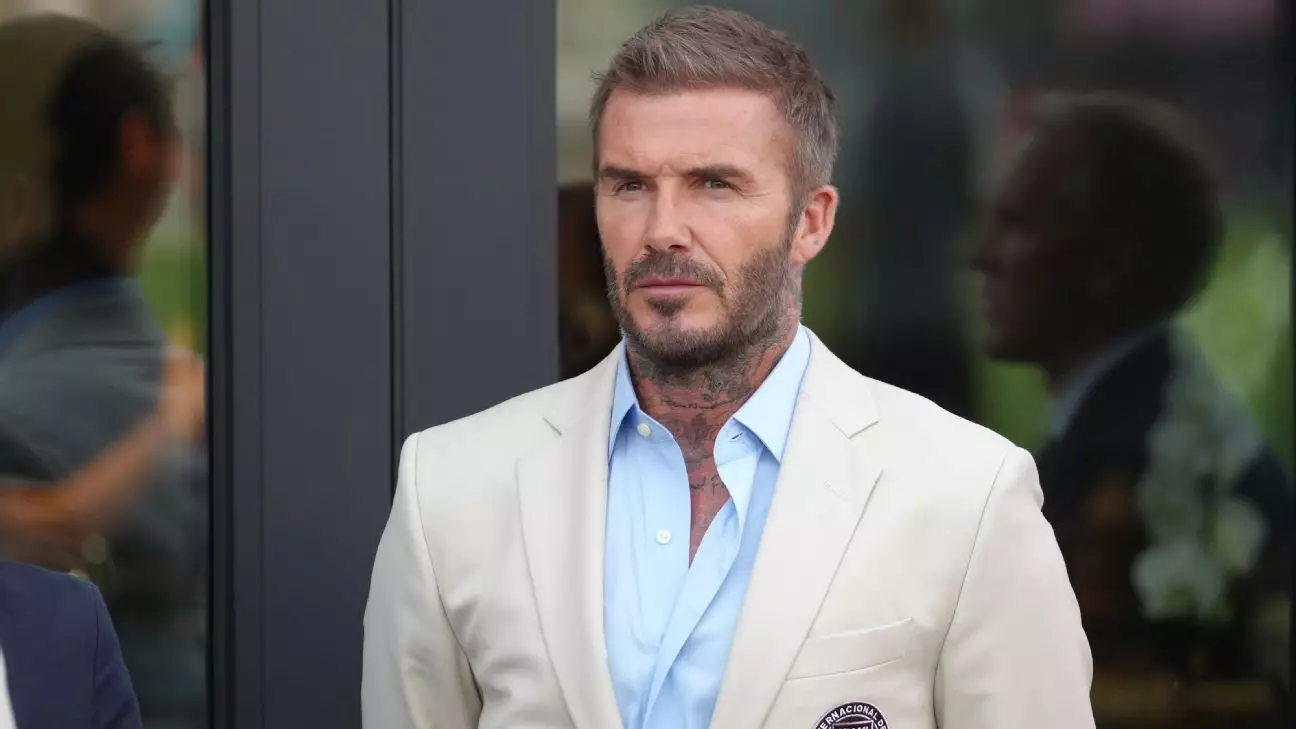David Beckham, an iconic figure in Manchester United’s storied history, recently expressed his disappointment over the behavior exhibited by the current squad during their post-season tour in Asia. This discontent is not merely a reflection of poor performance on the pitch, but touches on deeper issues related to the club’s culture and the players’ responsibility to represent the illustrious Manchester United badge. With Beckham’s storied career at the club, his sentiments resonate deeply with fans who cherish the values historically associated with the team.
Behaviour on Tour: A Missed Opportunity
The tour of Asia should have been a chance for the players to engage positively with their international fanbase. However, the recent incidents have overshadowed what could have been an uplifting experience. Amad Diallo’s infamous gesture towards fans in Kuala Lumpur, indicating frustration after allegedly facing insulting comments, starkly exemplifies the growing disconnect between players and supporters. Rather than demonstrating humility or understanding, players like Diallo reacted with hostility, further alienating the very people who sustain the club’s global appeal.
Moreover, Alejandro Garnacho’s confrontation with a fan only adds to the narrative of a squad seemingly unwilling to navigate the pressures of public scrutiny with grace. These episodes highlight a concerning trend where personal frustrations are manifested publicly, tarnishing the club’s image. As Beckham rightly pointed out, players have a duty to uphold the integrity and reputation of Manchester United, which extends far beyond their on-field performance.
The Weight of the Badge
For past legends like Beckham, the Manchester United badge symbolizes more than just a logo; it embodies a legacy of values, dedication, and respect. The collective mindset during their era transformed the club into a global powerhouse where every match was approached with a sense of pride. The current squad appears to lack this understanding, as their actions off the pitch suggest a growing indifference to the principles that once defined the club’s ethos. Beckham’s words serve as a poignant reminder that representing Manchester United encompasses a commitment to fan engagement and personal conduct.
The club’s recent performance, finishing 15th in the Premier League, is not just a testament to a lack of tactical direction but also indicates a broader cultural malaise. Players who do not recognize the potential impact of their actions—regardless of whether they occur on the pitch or in public—undermine the efforts of those who came before them. Beckham’s plea is ultimately for a return to the foundational respect that should guide the actions of every Manchester United player.
The Path Forward: Repentance and Rebuilding
Moving forward, both players and the Manchester United management must acknowledge this fundamental disconnect. It is not enough to perform well in matches; players must also actively engage with and honor their supporters. Beckham’s critique is not merely nostalgic; it is a call to action—challenging the current crop of players to not only improve their performance but also to restore the club’s reputation through their behavior.
The question lies not just in how the team performs on the pitch but in how they embody the values and legacy of Manchester United off it. This dual responsibility is crucial for the reformation of a club that has struggled with identity in recent years. The current atmosphere suggests an urgent need for introspection among the players, encouraging a renewed appreciation for what it truly means to play for Manchester United.

